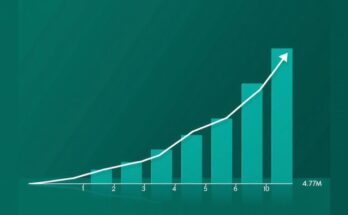Fitch Solutions projects Ghana’s primary income deficit to remain low at 3.1% of GDP, aided by a debt restructuring agreement that reduces debt service obligations by $3.5 billion until 2026. However, a reduction in U.S. aid may pressure the current account despite increases in remittances.
Fitch Solutions has forecasted that Ghana will maintain a modest primary income deficit due to ongoing debt restructuring efforts. The agreement made with commercial creditors has resulted in the replacement of prior dollar bonds, which will effectively reduce Ghana’s external debt service obligations by $3.5 billion from 2024 to 2026.
The adjustments stemming from the restructuring have already resulted in a decrease of interest payments by 1.3% of GDP in 2024, with further reductions expected to be 0.9% of GDP in 2025 and 0.6% in 2026 compared to the original bond terms. Additionally, the agreement with official creditors has secured a debt service moratorium until May 2026.
Fitch Solutions projects the primary income deficit for Ghana to be restrained at 3.1% of GDP, which is significantly lower than the five-year pre-default average of 5.5%. However, Ghana’s current account may experience pressures due to anticipated reductions in U.S. international aid.
The United States, which contributes approximately 20% of Ghana’s total aid receipts, has recently announced a 90% reduction in USAID contracts. This development is expected to adversely affect the country’s secondary income surplus.
While an increase in remittance inflows and aid from alternative donor nations is anticipated, these are unlikely to completely counterbalance the substantial decline in U.S. support. Consequently, Fitch Solutions projects a 3.0% contraction in net current transfers for the year 2025.
In summary, Fitch Solutions anticipates that Ghana’s primary income deficit will remain modest due to effective debt restructuring strategies, linked with a significant reduction in external debt obligations. However, the expected decrease in U.S. aid presents challenges for the country’s current account, although increases in remittances may provide some relief. Overall, Ghana’s fiscal outlook remains cautious amid evolving global financial dynamics.
Original Source: www.ghanaweb.com




